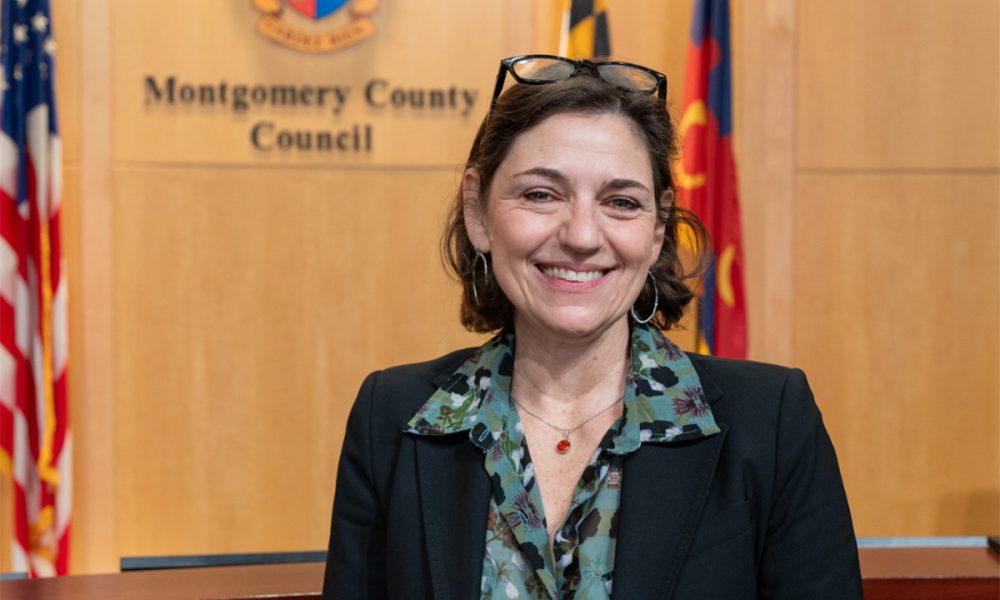
Maryland receives high marks overall from the Movement Advancement Project for its LGBTQ policy safeguards, including becoming a “shield” state for transgender health care. However, Council Vice President Kate Stewart and the county health nonprofit called an online summit on Saturday after conducting research in Montgomery County that revealed trans children have access to care issues.
In a phone interview with the Washington Blade, Stewart stated that “My child transitioned when he was in high school and our local pharmacy frequently did not have the proper size vials.” “I had to leave work and drive from Takoma Park to Chase Brexton in Howard County.” That’s not a quick drive, and public transportation isn’t an option.
Needles are now more widely available, according to her, thanks to Trans Maryland’s work, but more needs to be done to improve local access to equitable treatment.
Along with D.C., Maryland is one of 15 states that the Movement Advancement Project gave a great overall rating for its LGBTQ policies. 22 states have outlawed medically-advised treatment for transitioning minors by 2023, and Missouri has a similar ban on adult maintenance. In response, “shield” laws were passed by D.C. and 14 states, including Maryland, to ensure equitable access to healthcare.
Effective January 1, Maryland’s Trans Health Equity Act mandates that Medicaid include trans-affirming care. However, according to a study conducted in Montgomery County, 41% of people in need of this care said they had trouble finding it there.
Trans people were unaware of their services or where to look for them directly, despite the fact that the document listed three centers: Planned Parenthood, Mary’s Center, and CCI Health Services. Services offered by Chase Brexton Health and Johns Hopkins in Baltimore, as well as Whitman-Walker Health in Washington, D.C., were more well-known, largely because of their long histories of work and advocacy in the area. Equity, however, meant having local access to healthcare for the gender-diverse officials on the panel.
According to Rev. Ali K.C. Bell, a secretary at Cedar Lane Unitarian Universalist Church for Congregational Life, “Those without transportation or wealth aren’t able to receive transitional health care in their community.”
Bell claimed that while it was a privilege for him to be able to go to Baltimore for the medical treatment he needed, the financial gap disappointed him.
The roundtable to discuss the issues raised by the document was hosted by Stewart and CCI Health Services, a community health center with decades of experience in the area.
Dr. Will Giodano-Perez, the chief medical officer of CCI, announced a new doctor that focuses on physical and minority health, but he also acknowledged that more could be done to combat past discrimination and abuse.
Giodano-Perez stated that “Our goal is to provide excellent health treatment for everyone.” “We need to be conscious of the types of conversations we don’t have with our patients and to focus on addressing our own biases.”
Lee Blinder, the executive director of Trans Maryland, discussed their experiences frequently instructing medical professionals while receiving treatment.
Blinder, who was raised in Montgomery County, said, “One day I’m going to bill that dentist for ‘training’ them on how to address me and others like me.” “I would prefer to work with a provider who doesn’t require training.” You are vulnerable when you’re sitting there wearing that paper outfit.
Bell also emphasized the need for training for everyone in the company’s office in order for the health treatment experience to be viewed favorably. The Montgomery County Office of Community Partnerships’ LGBTQ liaison, Amena Johnson, suggested that health disparities among LGBTQ elders should also be addressed in the future.
“We are not all young people or kids. Before recounting an experience about visiting their grandparents in retirement facilities and the care teams not being prepared to interact with them as a trans grandchild, much less as an impending trans resident, Blinder said, “I hope to be an old trans person one day, and it doesn’t look like a great landscape, frankly.”
Giodano-Perez acknowledged the suffering caused by these challenging medical experiences, but he also acknowledged that one health business cannot address these problems on its own and may need support and involvement from the general public.
“We are constrained by the amount of time we have,” he said, noting his frustration at not being able to address all social determinants of health but also his desire to prevent “another of our people from dying by suicide.”
He said that one place to start was to ensure that all received courteous and efficient care.
“Sounds simple,” he said, “but we’re going to deal with these issues.”
Stewart explained to the Blade that her difficulties in caring for her son demonstrated her health equity, which revolved around having access to resources in your neighborhood.
Connecting with people’s everyday experiences, she said, “shows how much work we still have to do,” despite the fact that “on a chart it may seem like, also, we have Chase Brexton
over here and Whitman-Walker in D.C.”



